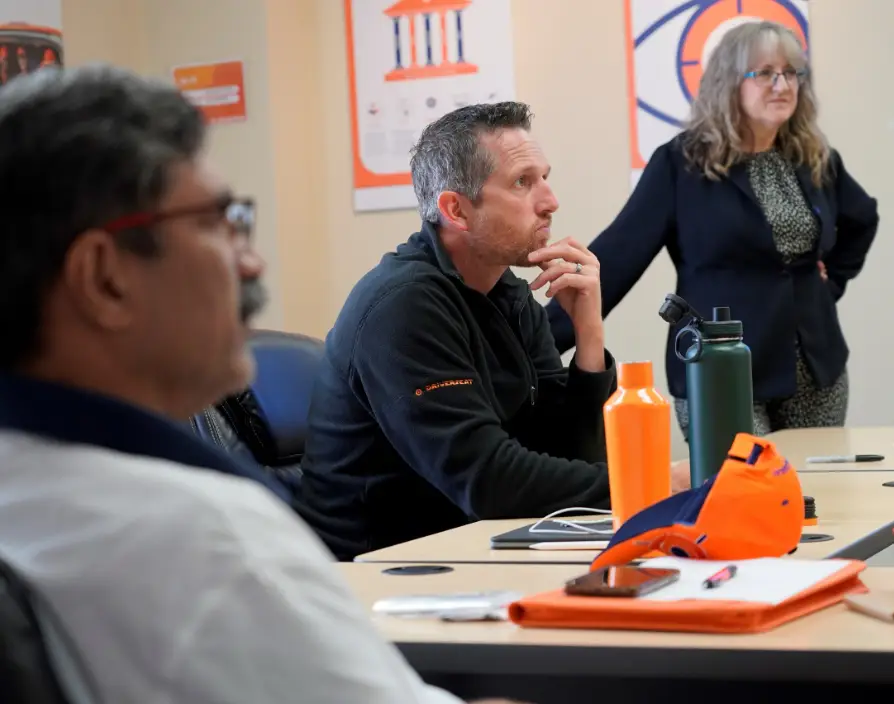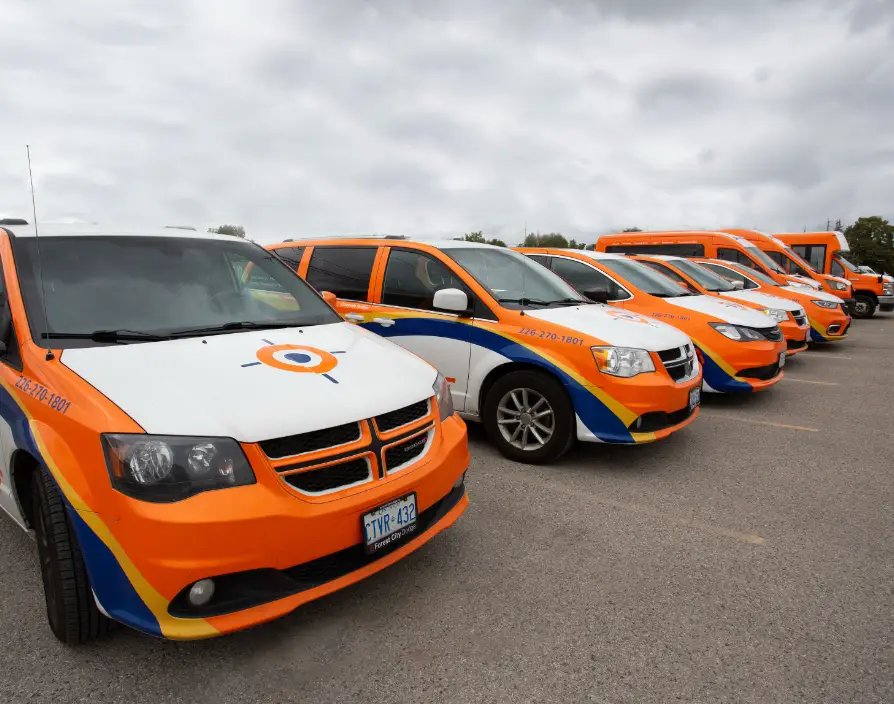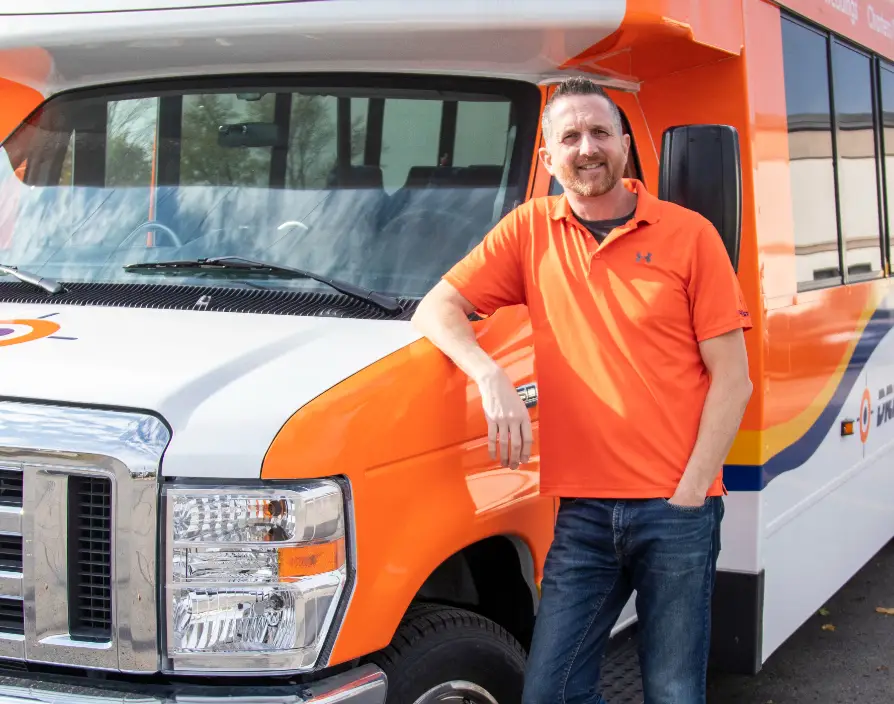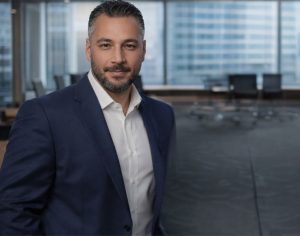In a sector dominated by the likes of Uber and Lyft, plus the more traditional taxi set-ups, if Driverseat isn’t quite classed as a disruptor, it’s certainly maximizing a niche opportunity.
Co-founded by CEO Luke Bazely, the brand has established a foothold in the transportation-for-hire sector by blending innovation, care, and a commitment to personalized service.
Bazely’s vision and leadership have propelled Driverseat’s growth, weathering challenges while positioning the company for future success.
Filling a gap in the market
The firm began as a driver-for-hire model, providing chauffeurs to drive clients in their own vehicles to medical appointments, airports, or home from events.
“We had identified a gap or opportunity to augment the taxi industry, providing a more personalized service in the comfort of your own vehicle,” Bazely explains.
While the company continues to offer the service in select markets, its real expansion came with the launch of its ‘Shuttle’ franchise offering in 2019, using high-occupancy vehicles such as vans and buses to cater to groups of six to 24 passengers.
According to Bazely, the market for such services is highly fragmented, with few established national or international brands. Driverseat aims to fill that void with its agile and client-centred approach.

A human touch
Bazely’s leadership philosophy is deeply influenced by his lifelong study of mindset, leadership, and personal development.
“I became a professional facilitator of the 7 Habits of Highly Effective People in my 20s,” he says.
Over the years, he has drawn from a range of theories to refine his leadership style, focusing on habit-building, creating a compelling vision, and influencing others.
Recently, Driverseat adopted the Entrepreneurial Operating System (EOS), a management framework detailed in the book Traction. Bazely describes it as a pragmatic approach that complements his people-centred leadership. “It’s fuelling our business and expansion plans,” he says.
The firm’s robust training and support system is a cornerstone of its franchise model. From initial training programs to ongoing resources, the company ensures that franchisees have the tools they need to thrive.
“Our training starts in an online learning management system and ends with in-person training at one of our facilities,” Bazely explains.
Franchisees also receive customized scorecards and quarterly goals to guide their progress. Weekly support meetings and access to an AI-powered support bot further ensure that franchisees can quickly address challenges and access materials.
“This model is designed to create clarity and flow in the business,” he says. “In a well-built franchise, success comes from rigorously following the recipe and quickly getting to the root cause of issues.”
Navigating challenges
Expanding across Canada has not been without its challenges.
“After a solid launch of the ‘Shuttle’ franchise licenses in 2019, we faced pandemic-related challenges, which led to a net loss in the number of locations,” Bazely recalls.
The pandemic also forced a freeze on franchise development. The locations that survived the pandemic have, however, experienced consistent revenue growth in the past three years.
Driverseat also underwent a major restructuring, revisiting its vision, mission, and values. Core business systems were overhauled, including the implementation of the aforementioned EOS learning management system, and an AI support bot for franchisees.
“We made the difficult decision to halt franchise development to ensure we were not bringing new partners into an evolving business model,” Bazely explains. With those changes in place, Driverseat is now targeting key geographies and franchise partners aligned with its vision.

Standing out
What sets Driverseat apart from traditional transportation services is its commitment to “client delight” across multiple industry verticals. From wedding shuttles and medical appointments to wine tours and employee commuter services, the company applies the same high standards to every service.
“We treat our passengers like people rather than cargo,” Bazely explains.
Driverseat also focuses on a niche market, catering to groups of six to 24 passengers – an area with few competitors actively building a recognizable brand.
The transportation industry is undergoing rapid technological change, from driverless vehicles to alternative fuels and flying taxis, and Bazely sees these developments as opportunities for Driverseat.
“The way people move and connect in their community is changing, and we will evolve with those changes to ensure we continue to deliver delightful experiences,” he says.
At the heart of its success is its care-based approach, which shapes relationships with both corporate and individual clients.
“Our approach with corporate clients and leisure clients is exactly the same: provide incredible experiences and genuinely care about them,” Bazely says. It’s a philosophy that has built lasting relationships, with many clients returning for repeat business.
The focus on care also extends to its employees, including its chauffeurs. The company strategically builds its employer brand by celebrating its culture and highlighting real people doing meaningful work.
“If they are not reliable or accountable, they likely won’t fully embrace our culture,” Bazely says. The firm also takes responsibility for creating an environment where employees feel part of something larger, with opportunities for growth and development.
Plans for expansion
Looking ahead, the plan is to further expand the Canadian market and move into the US. The company also plans to test new services aligned with its core focus and commitment to client experience.
“Our long-term vision is related to overall system revenue,” Bazely says. “We will likely achieve that in Canada and the US, allowing us to be opportunistic as it pertains to expansion in other countries.”
In a customer-focused industry, Driverseat’s journey under Luke Bazely’s leadership illustrates the power of focusing on the basics while attempting to innovate.
As the company continues to grow, its focus on creating positive transportation experiences is giving it an edge in a market that is increasingly dominated by big tech companies.







